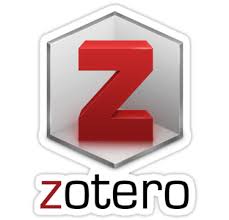Penggunaan Aplikasi Digital Sebagai Mahar Pernikahan Menurut Hukum Agama Islam Dan Negara
DOI:
https://doi.org/10.59240/kjsk.v5i3.332Keywords:
Mahr, Digital Applications, Islamic Law, Ownership, Legal ValidityAbstract
This study examines the validity of using digital applications as mahr (bridal dower) in marriage from the perspectives of Islamic law and Indonesian positive law. The rapid development of digital assets and their economic value has raised contemporary legal questions regarding their legitimacy as objects of mahr. Using a qualitative, library-based research method, this study analyzes classical fiqh literature, statutory regulations, and legal reasoning related to property ownership and transferability. The findings show that digital applications can be categorized into three types: freeware, lifetime license, and subscription-based applications. Through the application of qiyās (analogical reasoning), the study concludes that paid applications both lifetime and subscription-based—may serve as valid mahr because they have measurable value, lawful benefit, and transferable ownership, fulfilling the conditions required in Islamic law. In contrast, freeware lacks economic value and therefore does not meet the legal requirements for mahr. From the perspective of Indonesian law, as long as the object of mahr is mutually agreed upon and does not contradict religious or civil principles, digital applications with legitimate ownership rights may be considered valid.
References
Abidin, A. F. (2024, September). UNESCO: Minat baca di Indonesia masih rendah, tantangan dan solusi bagi literasi nasional. Kompasiana. https://www.kompasiana.com/ahmad090104/6705d1ebc925c44ba74a5c82/unesco-minat-baca-di-indonesia-masih-rendah-tantangan-bagi-literasi-nasional
Al-Syaikh, S. A. A. (2009). Al-Fiqh al-muyassar fi dhaw’ al-kitab wa as-sunnah. Riyadh: Dar I’lam as-Sunnah.
Al-Utsaimin, M. (2002). Al-Ushul min ‘ilm al-ushul. Riyadh: Dar Ibn al-Jauzi.
Al-Zuhayli, W. (1997). Al-fiqh al-islami wa adillatuhu. Dar al-Fikr.
Anonymous. (n.d.-a). Subscription-based apps: Pros, cons, and how to make the big bucks. Upland Software. https://uplandsoftware.com/localytics/resources/blog/subscription-based-apps-pros-cons-and-how-to-make-the-big-bucks
Anonymous. (n.d.-b). What is a lifetime license? DxO Support. https://support.dxo.com/hc/en-us/articles/4496928074385-What-is-a-Lifetime-License
Fadli, A. M., & Hutami, R. (2024). Studi literatur penerapan metodologi penilaian barang milik negara berupa aset tak berwujud. Jurnal Acitya Ardana, 4(2), 71–89. https://doi.org/10.31092/jaa.v4i2.2703
Ghozali, A. R. (2015). Fiqh munakahat. Bandung: PrenadaMedia Group.
Ibnu Qudamah, A. (2017). Raudhatun naz̧hir wa junnat al-manaz̧hir. Dar Ibn al-Jauzi.
Ibnu Rusyd, M. (1995). Bidayatul mujtahid wa nihayatul muqtashid (1st ed.). Dar Ibn Hazm.
Kementerian Agama Republik Indonesia. (1991). Kompilasi hukum Islam (Instruksi Presiden No. 1 Tahun 1991).
Lia Novita Sari. (2023). Legalitas penggunaan cryptocurrency sebagai mahar perkawinan di Indonesia perspektif Kompilasi Hukum Islam dan Majelis Ulama Indonesia [Master’s thesis, Universitas Islam Negeri Kiai Haji Achmad Siddiq]. UIN KHAS Digital Library. https://digilib.uinkhas.ac.id/30710/1/TESIS%20LIA%20NOVITA%20SARI%20OK.pdf
Majid, I. (2022). Mahar akun YouTube dalam perspektif maslahah mursalah (Undergraduate thesis, Universitas Islam Negeri Syarif Hidayatullah). UIN Jakarta Repository. https://repository.uinjkt.ac.id/dspace/bitstream/123456789/65389/1/ILHAM%20MAJID%20-%20FSH.pdf
Marzuki, P. M. (2017). Penelitian hukum. Jakarta: Kencana.
Moleong, L. J. (2021). Metodologi penelitian kualitatif (pp. 6–7). Bandung: Remaja Rosdakarya.
Musarrofah, I. (2021). Tren mahar di era digital (Tinjauan sosiologi hukum Islam penggunaan mahar digital di komunitas dunia cyber). Jurnal Hukum Islam, 19(1), 151–174.
Musyaffa, A. D. (2021, January 3). Ushul fiqih # qiyas. Catatankajian.net. https://catatankajian.net/fiqih/ushul-fiqih-qiyas
Redaksi Sekawan Media. (n.d.). Freeware: Pengertian, fungsi, keunggulan, dan 8 contohnya. Sekawanmedia.co.id. https://www.sekawanmedia.co.id/blog/apa-itu-freeware
Republik Indonesia. (1974). Undang-Undang Republik Indonesia Nomor 1 Tahun 1974 tentang Perkawinan. Lembaran Negara Republik Indonesia Tahun 1974 Nomor 1.
Republik Indonesia. (2008). Undang-Undang Republik Indonesia Nomor 11 Tahun 2008 tentang Informasi dan Transaksi Elektronik.
Downloads
Published
How to Cite
Issue
Section
License
Copyright (c) 2025 Maulana Nur Muhammad, Arif Husnul Khuluq

This work is licensed under a Creative Commons Attribution-NonCommercial-ShareAlike 4.0 International License.






